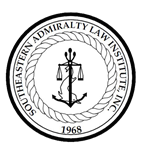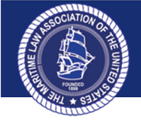Alcohol remains one of the greatest risk factors regarding car accidents that result in injuries or fatalities. Approximately a third of fatal collisions involve a driver who was under the influence of alcohol or drugs at the time of the accident. Louisiana residents have long been saying that stricter drunk driving laws could prevent many untimely deaths. For example, in the fall of 2021, Michaila Bowling, Hali Coss, and Lily Dufrene of St. Charles Parish, who had graduated from high school together earlier that year, died when a pickup truck crossed the center line and collided head-on with their car. The driver of the pickup truck, Joey Clement, was under the influence of alcohol at the time and had a prior criminal record for drunk driving. On August 1, 2023, new drunk driving laws go into effect in Louisiana, pursuant to the recent passage of two pieces of legislation. Meanwhile, people who have already been injured in drunk driving accidents are still suffering. A Houma car accident lawyer can help you recover damages if you suffered serious injuries in an alcohol-related collision.
Provisions of HB484 and SB82
Two bills related to drunk driving became law this year, namely HB484, written by Rep. Rick Edmonds of Baton Rouge, and SB82, written by Sen. Michael Fesi of Houma; the latter bill is named the Bowling, Coss, and Dufrene Drunk Driving Prevention Act in honor of the victims of the 2021 crash. The new laws expand the use of ignition interlock devices as a penalty for drunk driving convictions. Since defendants ordered to use ignition interlock devices must pay for them at their own expense, the new law lowers the cost of these devices in order to increase compliance. Furthermore, instead of simply keeping the device attached to the car for a predetermined period set at the time of sentencing, the new law sets different timetables for the removal of the ignition interlock device, depending on the details of the case, such as the at-fault driver’s blood alcohol content (BAC) at the time of the accident and whether they had any previous drunk driving convictions.
Another provision of the new laws is that it adopts a stricter definition of “very drunk.” Anyone who drives when their BAC is at least 0.08% can be charged with DWI, but under the old system, enhanced penalties only applied if the drunk driver’s BAC was at least 0.20%. Under the new law, the enhanced penalties apply when the driver’s BAC is at least 0.15%, which is slightly less than twice the legal limit.
Contact the Law Office of Patrick H. Yancey About Car Accidents
A car accident lawyer can help you recover your accident-related financial losses if you suffered injuries in an accident where the at-fault driver was under the influence of alcohol. Contact the Law Office of Patrick H. Yancey in Houma, Louisiana, to set up a consultation about your case.
Sources









